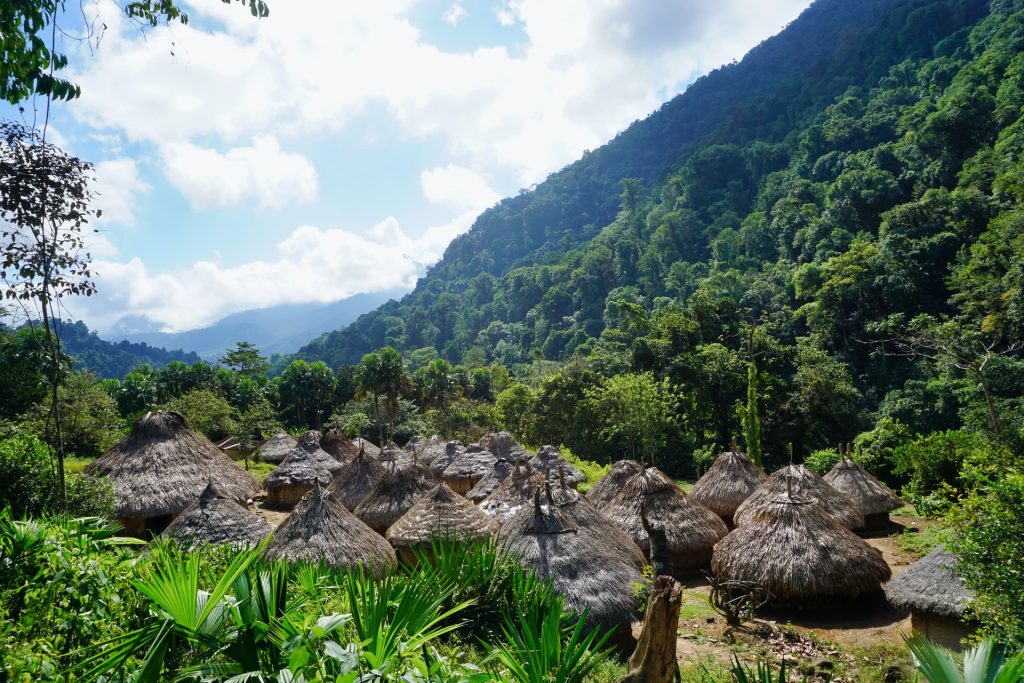Originally appears here at UNEP-WCMC

Colombia is one of the most biodiverse countries on Earth and is the global host for World Environment Day 2020 on the 5th of June.
While events on the ground have been cancelled due to COVID-19, Colombia continues its crucial role as host by inspiring countries worldwide, demonstrating how the connection between people and nature can, and should be at the centre of decision-making.
Colombia is home to over 48 million people, mostly of Indigenous, European and African descent. The country has coastlines in both the Pacific Ocean and the Caribbean Sea. Its territory is crossed by the Andes, whilst the Amazon rainforest dominates its southern landscape. Colombia harbours over 51,000 species and 300 different ecosystem types. Sustainable development is, therefore, key to safeguarding Colombia’s rich biological and cultural diversity for people and for nature.
National Ecosystem Assessments are tools for sustainable development
The contributions of nature to people can be difficult to quantify and so are often overlooked and undervalued in national policy-settings and decision-making processes. National Ecosystem Assessments can support sustainable development at the policy level by providing governments with an up-to-date and robust evidence base about the true value and the benefits of biodiversity and ecosystem services and identify gaps in knowledge and understanding. Even more, by ensuring the engagement of key stakeholders in their development, findings from National Ecosystem Assessments are generally supported across sectors.
UNEP-WCMC is working with Colombia – along with 11 other countries – in building capacity for the development of National Ecosystem Assessments as part of its efforts to support the Intergovernmental Platform on Biodiversity and Ecosystem Services (IPBES).
Colombia’s National Ecosystem Assessment report, which will be launched later this year, is especially important as it recognises biodiversity as being critical for both the country’s economy and society.
Understanding ecosystems and their links to human wellbeing
Colombia’s National Ecosystem Assessment considers both the country’s biological and cultural diversity. In particular, the process aimed to bridge the gaps between traditional and scientific knowledge and decision-making in order to better understand and manage ecosystems and their links to human wellbeing.
The assessment considers cultural, social and environmental linkages through a gender lens, underlining the knowledge of women and men and their multiple knowledge transfer systems. It highlights Indigenous People and local communities’ deep knowledge of nature and the strong relationship they maintain with their surrounding biodiversity.
A socio-ecological transformation towards sustainability
The results of Colombia’s National Ecosystem Assessment will be a tool for every sector of Colombian society to improve understanding of the value of ecosystem services, current biodiversity trends and their impacts on people, and of possible future policy scenarios, as a basis for action on sustainable development.
The assessment is part of Colombia’s commitment to a sustainability transformation and contributing to the post-2020 global biodiversity agenda.
It is planned that the National Ecosystem Assessment will encourage a holistic vision from decision-makers and stakeholders regarding the wealth and complexity of peoples’ connections to nature in Colombia and draw attention to the urgency and importance of placing Colombia’s biological and cultural diversity at the heart of its sustainable development.